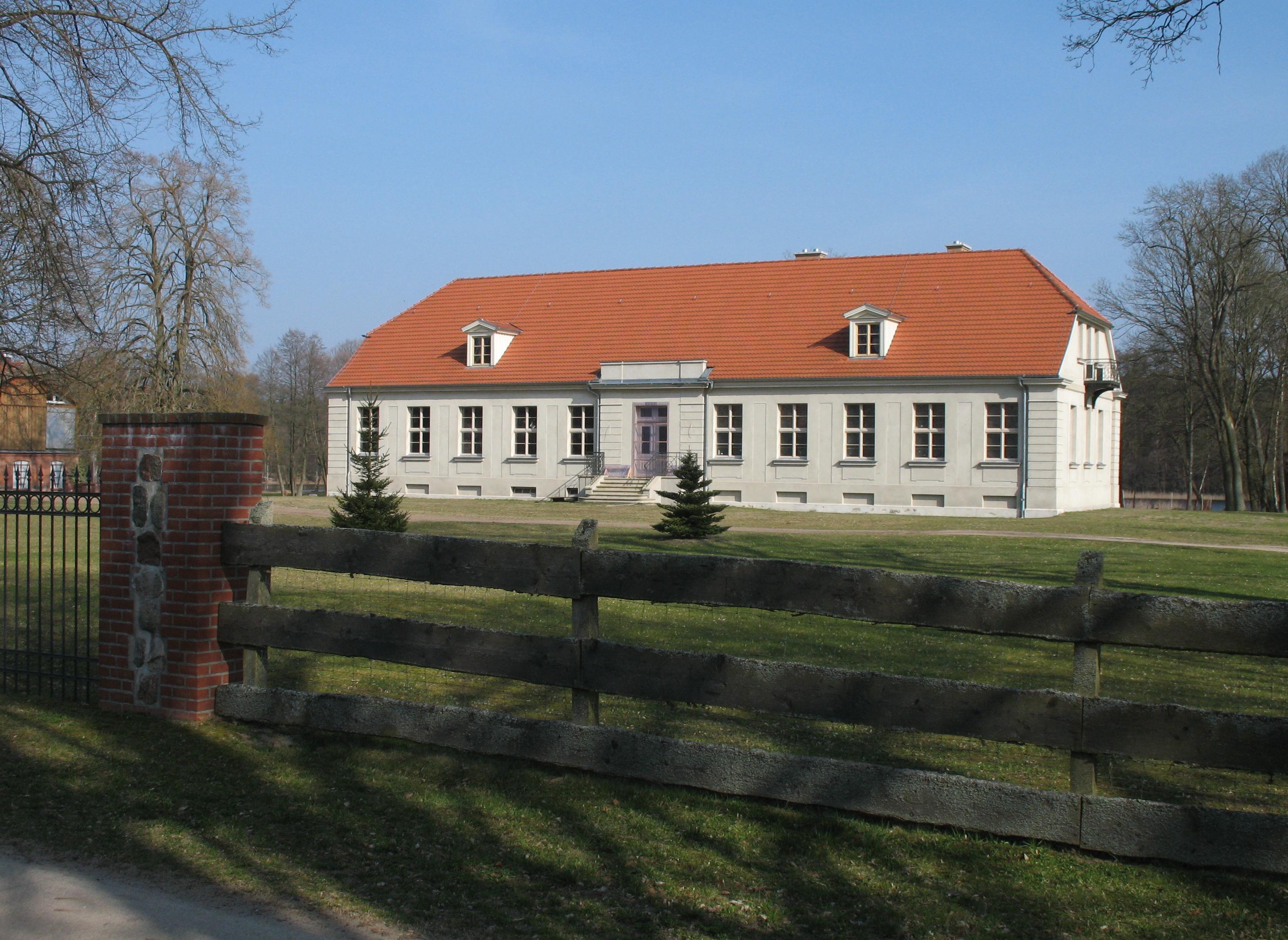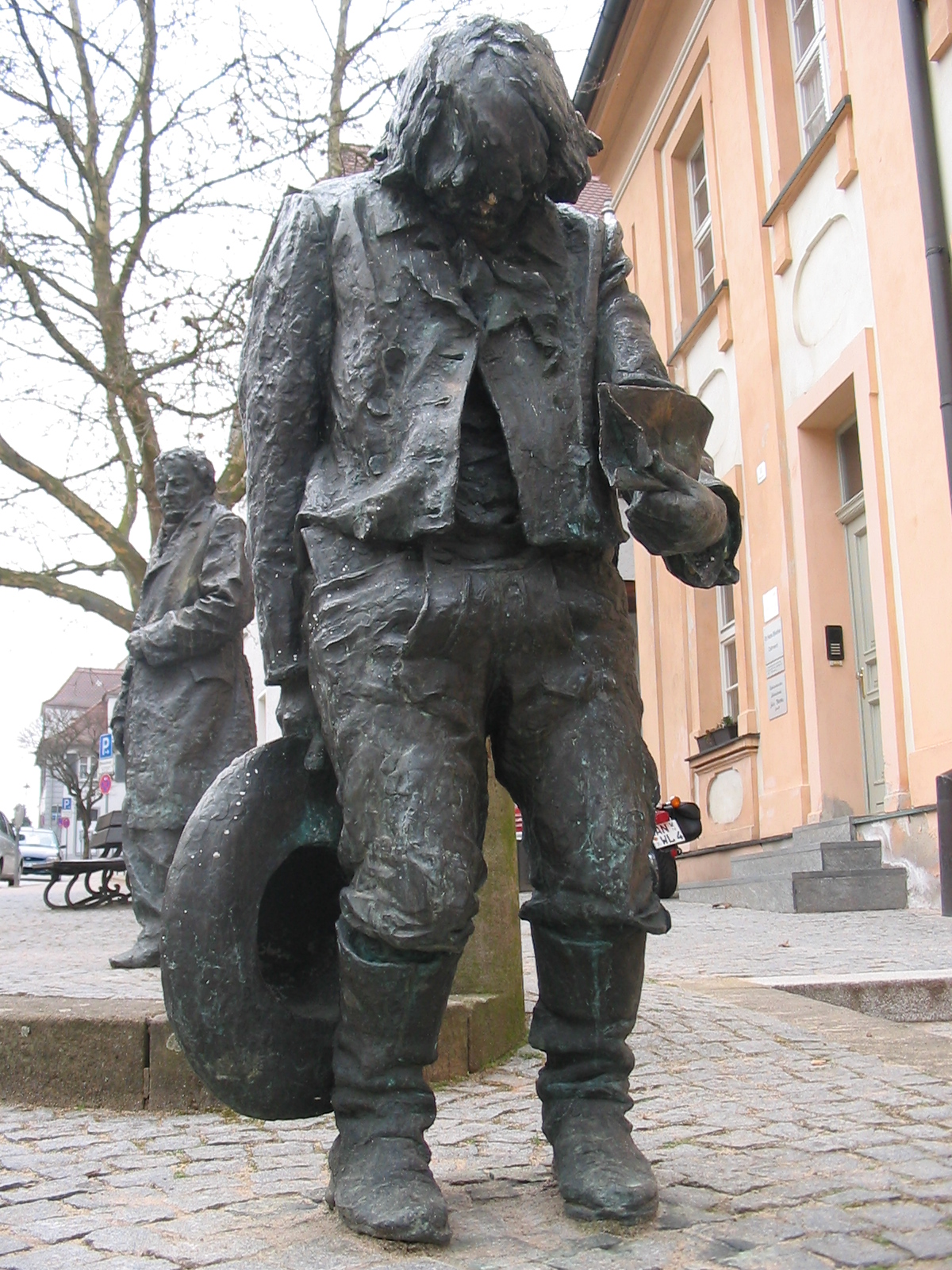|
Tucholsky
Kurt Tucholsky (; 9 January 1890 – 21 December 1935) was a German journalist, satirist, and writer. He also wrote under the pseudonyms Kaspar Hauser (after the historical figure), Peter Panter, Theobald Tiger and Ignaz Wrobel. Tucholsky was one of the most important journalists of the Weimar Republic. As a politically engaged journalist and temporary co-editor of the weekly magazine '' Die Weltbühne'' he proved himself to be a social critic in the tradition of Heinrich Heine. He was simultaneously a satirist, an author of satirical political revues, a songwriter and a poet. He saw himself as a left-wing democrat and pacifist and warned against anti-democratic tendencies – above all in politics, the military – and the threat of National Socialism. His fears were confirmed when the Nazis came to power in January 1933. In May of that year he was among the authors whose works were banned as " un-German", and burned; he was also among the first authors and intellectuals whose G ... [...More Info...] [...Related Items...] OR: [Wikipedia] [Google] [Baidu] |
Die Weltbühne
''Die Weltbühne'' (‘The World Stage’) was a German weekly magazine for politics, art and the economy. It was founded in Berlin in 1905 as (‘The Theater’) by Siegfried Jacobsohn and was originally a theater magazine only. In 1913 it began covering economic and political topics and for the next two decades was one of the leading periodicals of Germany’s political left. It was renamed to ''Die Weltbühne'' on 4 April 1918. After Jacobsohn's death in December 1926, leadership of the magazine passed to Kurt Tucholsky, who turned it over to Carl von Ossietzky in May of 1927. The Nazi Party banned the publication shortly after it came to power, and the magazine's last issue appeared on 7 March 1933. It continued from exile as (‘The New World Stage’) until 1939. After the end of World War II, it appeared again under its original name in East Berlin, where it survived until 1993. The magazines ''Ossietzky'' (since 1997) and ''Das Blättchen'' (‘The Leaflet’, 1998) hav ... [...More Info...] [...Related Items...] OR: [Wikipedia] [Google] [Baidu] |
Schloss Gripsholm
''Schloss Gripsholm. Eine Sommergeschichte'' ( Gripsholm palace: A summer story) is the title of a story (''Erzählung'') by Kurt Tucholsky, published in 1931. It is a love story with comic and melancholic elements, reminiscent of the author's first novel, '' Rheinsberg: Ein Bilderbuch für Verliebte''. Plot The book begins with a fictional correspondence of an author and his publisher, Ernst Rowohlt. with Rowohlt encouraging Tucholsky to write another light and cheerful love story, and Tucholsky replying that he could offer a summer story. The following story covers a summer vacation of Kurt, called Peter and narrating in the first person, with his friend Lydia, called by him almost always "''die Prinzessin''" (the princess), in Sweden. After train and ferry rides, they arrive at Gripsholm palace where they spend around three weeks. They are visited there by Kurt's old friend Karlchen, and later Lydia's best friend Billie. The story in episodes includes an erotic scene of th ... [...More Info...] [...Related Items...] OR: [Wikipedia] [Google] [Baidu] |
Kurt Szafranski
Kurt Szafranski, in exile Safranski, (17 October 18901 March 1964) was a German-American draftsman, journalist and managing director. In Germany, he illustrated Kurt Tucholsky's ''Rheinsberg'' in 1912, and was managing director of the ''Berliner Illustrirte Zeitung'' (BIZ). In exile in the U.S., he was a co-founder of the Black Star, a leading photo agency. Life and career Born in Berlin, Szafranski was a friend of the writer Kurt Tucholsky, whose first literary work, ''Rheinsberg'', he illustrated in 1912.''Ein Bilderbuch für Verliebte'' With his friend Tucholsky, he opened a ''Bücherbar'' (book bar) on Kurfürstendamm, where they sold cheap books and alcoholic beverages. Every purchaser of ''Rheinsberg'' received a free schnaps. He also illustrated for Klabund. By the Tucholsky illustrations, he had contact to the Ullstein Verlag, where he worked on the artistic advisory board from 1913. In the 1920s, he was managing director of the ''Berliner Illustrirte Zeitung'' (BIZ), wh ... [...More Info...] [...Related Items...] OR: [Wikipedia] [Google] [Baidu] |
Nazi Book Burnings
The Nazi book burnings were a campaign conducted by the German Student Union (, ''DSt'') to ceremonially burn books in Nazi Germany and Austria in the 1930s. The books targeted for burning were those viewed as being subversive or as representing ideologies opposed to Nazism. These included books written by Jewish, half-Jewish, communist, socialist, anarchist, liberal, pacifist, and sexologist authors among others. The initial books burned were those of Karl Marx and Karl Kautsky, but came to include very many authors, including Albert Einstein, Helen Keller, writers in French and English, and effectively any book incompatible with Nazi ideology. In a campaign of cultural genocide, books were also burned by the Nazis ''en masse'' in occupied territories.Hench, John B. (2010) ''Books As Weapons'', pg. 31. Ithaca, New York: Cornell University Press. Campaign Announcement On April 8, 1933, the Main Office for Press and Propaganda of the German Student Union (DSt) proc ... [...More Info...] [...Related Items...] OR: [Wikipedia] [Google] [Baidu] |
Französisches Gymnasium Berlin
The Französisches Gymnasium (french: Lycée français de Berlin) is a long-existing francophone gymnasium in Berlin, Germany. Traditionally, it is widely regarded as an elite high school. It is also the oldest public school in Berlin. Its creation was ordered by Frederick William of Brandenburg. History It was founded in 1689 by Frederick William's son Elector Frederick III of Brandenburg for the children of the Huguenot families who had settled in Brandenburg-Prussia by his invitation, being persecuted for their Protestant beliefs in the Catholic Kingdom of France after the Revocation of the Edict of Nantes by King Louis XIV in October 1685. Its first headmaster was the French jurist Charles Ancillon from Metz. Since its foundation, the school has had an almost continuous history, occupying several buildings in Berlin. In the beginning, the faculty comprised Huguenot refugees only and the language of education was French. The school soon was attended also by numerous ... [...More Info...] [...Related Items...] OR: [Wikipedia] [Google] [Baidu] |
Rheinsberg
Rheinsberg () is a town and a municipality in the Ostprignitz-Ruppin district, in Brandenburg, Germany. It is located on lake and the river Rhin, approximately 20 km north-east of Neuruppin and 75 km north-west of Berlin. History Frederick the Great, while still Crown Prince, designed and moved into a restored chateau in Rheinsberg shortly after his 1733 marriage to Elisabeth Christine of Brunswick-Bevern. Here he experienced his "Rheinsberg Period", an era marked by regular correspondence with Voltaire, boisterous celebration in the company of minor philosophers and musicians, and the writing of several works of political theory, including the '' Anti-Machiavel.'' In 1870, the painter Eduard Gaertner and his family decided to leave the hectic atmosphere of Berlin and settle in Flecken Zechlin, a suburb of Rheinsberg - where he lived until his death in 1877. Rheinsberg is the location for Kurt Tucholsky's '' Rheinsberg'', a 1912 picture book for lovers based ... [...More Info...] [...Related Items...] OR: [Wikipedia] [Google] [Baidu] |
Moabit
Moabit () is an inner city locality in the borough of Mitte, Berlin, Germany. As of 2016, around 77,000 people lived in Moabit. First inhabited in 1685 and incorporated into Berlin in 1861, the former industrial and working-class neighbourhood is fully surrounded by three watercourses, which define its present-day border. Between 1945 and 1990, Moabit was part of the British sector of West Berlin and directly bordered East Berlin. Until the administrative reform in 2001, Moabit was a part of the district of Tiergarten. Colloquially, the name ''Moabit'' also refers to the Central Criminal Court (''Strafgericht'') and detention centre, which deals with all criminal cases in Berlin and is based in Moabit. Name The origin of the name ''Moabit'' is disputed. According to one account, it can be traced back to the Huguenots, in the time of King Frederick William I of Prussia. These French refugees are said to have named their new residence in reference to the Biblical description ... [...More Info...] [...Related Items...] OR: [Wikipedia] [Google] [Baidu] |
Der Wahre Jacob (magazine)
''Der Wahre Jacob'' (German: ''The True Jacob'') was a biweekly satirical magazine which had a social democratic political stance and was an organ of the Social Democratic Party (SPD). It was in circulation between 1879 and 1933 and based first in Hamburg, and in Stuttgart in German Empire. History and profile ''Der Wahre Jacob'' was launched in Hamburg in 1879. Its founders were Johann Heinrich Wilhelm Dietz and Wilhelm Blos who were serving at the Parliament. The former was also the publisher of ''Der Wahre Jacob''. The ultimate goal set for the magazine was "to fight for the rights of the working classes in its peculiar and effective way." The magazine was mostly read by the members of the SPD. Due to the passing of anti-socialist laws ''Der Wahre Jacob'' was banned by the Hamburg state government in 1881 just after twelve issues. In 1884 the magazine was restarted by Johann Heinrich Wilhelm Dietz in Stuttgart and from 1888 it was published on a biweekly basis. In 1910 anothe ... [...More Info...] [...Related Items...] OR: [Wikipedia] [Google] [Baidu] |
Vorwärts
''Vorwärts'' (, "Forward") is a newspaper published by the Social Democratic Party of Germany (SPD). Founded in 1876, it was the central organ of the SPD for many decades. Following the party's Halle Congress (1891), it was published daily as the successor of ''Berliner Volksblatt'', founded in 1884. Today it is published every two months, mailed to all SPD members. History The paper was founded as a merger of the Eisenacher's '' Der Volksstaat'' and the Lasalleans ''Der Sozialdemokrat'' ( General German Workers' Association). Its first editors were Wilhelm Hasenclever and Wilhelm Liebknecht. Friedrich Engels and Kurt Tucholsky both wrote for ''Vorwärts''. It backed the Russian Marxist economists and then, after the split in the Party, the Mensheviks. It published articles by Leon Trotsky, but would not publish any by Vladimir Lenin. During the First World War ''Vorwärts'' opposed the SPD's ''Burgfriedenspolitik'' in favour of pacifism and neutrality until 1916 whe ... [...More Info...] [...Related Items...] OR: [Wikipedia] [Google] [Baidu] |
Kaspar Hauser
Kaspar Hauser (30 April 1812 – 17 December 1833) was a German youth who claimed to have grown up in the total isolation of a darkened cell. Hauser's claims, and his subsequent death from a stab wound to his left breast, sparked much debate and controversy. Theories propounded at the time identified him as a member of the grand ducal House of Baden, hidden away because of royal intrigue. These opinions may or may not have been documented by later investigations. Other theories proposed that Hauser had been a fraud. History First appearance On 26 May 1828, a teenage boy appeared in the streets of Nuremberg, Germany. He carried a letter with him addressed to the captain of the 4th squadron of the 6th cavalry regiment, Captain von Wessenig. Its heading read: The anonymous author said that the boy was given into his custody as an infant on 7 October 1812 and that he instructed him in reading, writing and the Christian religion, but never let him "take a single step out o ... [...More Info...] [...Related Items...] OR: [Wikipedia] [Google] [Baidu] |
Max Brod
Max Brod ( he, מקס ברוד; 27 May 1884 – 20 December 1968) was a German-speaking Bohemian, later Israeli, author, composer, and journalist. Although he was a prolific writer in his own right, he is best remembered as the friend and biographer of writer Franz Kafka. Kafka named Brod as his literary executor, instructing Brod to burn his unpublished work upon his death. Brod refused and had Kafka's works published instead. In 1939, as the Nazis took over Prague, he emigrated to Mandatory Palestine, taking with him a suitcase of Kafka's papers, many of them unpublished notes, diaries, and sketches. Biography Max Brod was born in Prague, then part of the province of Bohemia in Austria-Hungary, now the capital of the Czech Republic. At the age of four, Brod was diagnosed with a severe spinal curvature and spent a year in corrective harness; despite this he would be a hunchback his entire life. A German-speaking Jew, he attended the Piarist school together with his li ... [...More Info...] [...Related Items...] OR: [Wikipedia] [Google] [Baidu] |
Franz Kafka
Franz Kafka (3 July 1883 – 3 June 1924) was a German-speaking Bohemian novelist and short-story writer, widely regarded as one of the major figures of 20th-century literature. His work fuses elements of realism and the fantastic. It typically features isolated protagonists facing bizarre or surrealistic predicaments and incomprehensible socio-bureaucratic powers. It has been interpreted as exploring themes of social alienation, alienation, existential anxiety, guilt (emotion), guilt, and absurdity. His best known works include the short story "The Metamorphosis" and novels ''The Trial'' and ''The Castle (novel), The Castle''. The term '':en:wikt:Kafkaesque, Kafkaesque'' has entered English to describe absurd situations, like those depicted in his writing. Kafka was born into a middle-class German-speaking History of the Jews in the Czech lands, Czech Jewish family in Prague, the capital of the Kingdom of Bohemia, then part of the Austro-Hungarian Empire, today the capit ... [...More Info...] [...Related Items...] OR: [Wikipedia] [Google] [Baidu] |







